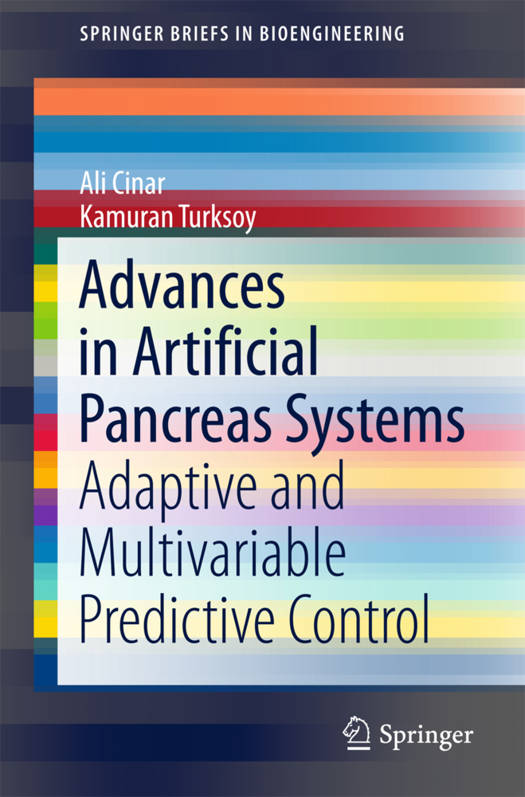
- Retrait gratuit dans votre magasin Club
- 7.000.000 titres dans notre catalogue
- Payer en toute sécurité
- Toujours un magasin près de chez vous
- Retrait gratuit dans votre magasin Club
- 7.000.0000 titres dans notre catalogue
- Payer en toute sécurité
- Toujours un magasin près de chez vous
Advances in Artificial Pancreas Systems
Adaptive and Multivariable Predictive Control
Ali Cinar, Kamuran Turksoy
52,95 €
+ 105 points
Description
This brief introduces recursive modeling techniques that take account of variations in blood glucose concentration within and between individuals. It describes their use in developing multivariable models in early-warning systems for hypo- and hyperglycemia; these models are more accurate than those solely reliant on glucose and insulin concentrations because they can accommodate other relevant influences like physical activity, stress and sleep.
Such factors also contribute to the accuracy of the adaptive control systems present in the artificial pancreas which is the focus of the brief, as their presence is indicated before they have an apparent effect on the glucose concentration and so can be more easily compensated. The adaptive controller is based on generalized predictive control techniques and also includes rules for changing controller parameters or structure based on the values of physiological variables. Simulation studies and clinical studies are reported to illustrate the performance of the techniques presented.Spécifications
Parties prenantes
- Auteur(s) :
- Editeur:
Contenu
- Nombre de pages :
- 119
- Langue:
- Anglais
- Collection :
Caractéristiques
- EAN:
- 9783319722443
- Date de parution :
- 13-03-18
- Format:
- Livre broché
- Format numérique:
- Trade paperback (VS)
- Dimensions :
- 157 mm x 229 mm
- Poids :
- 226 g

Les avis
Nous publions uniquement les avis qui respectent les conditions requises. Consultez nos conditions pour les avis.






